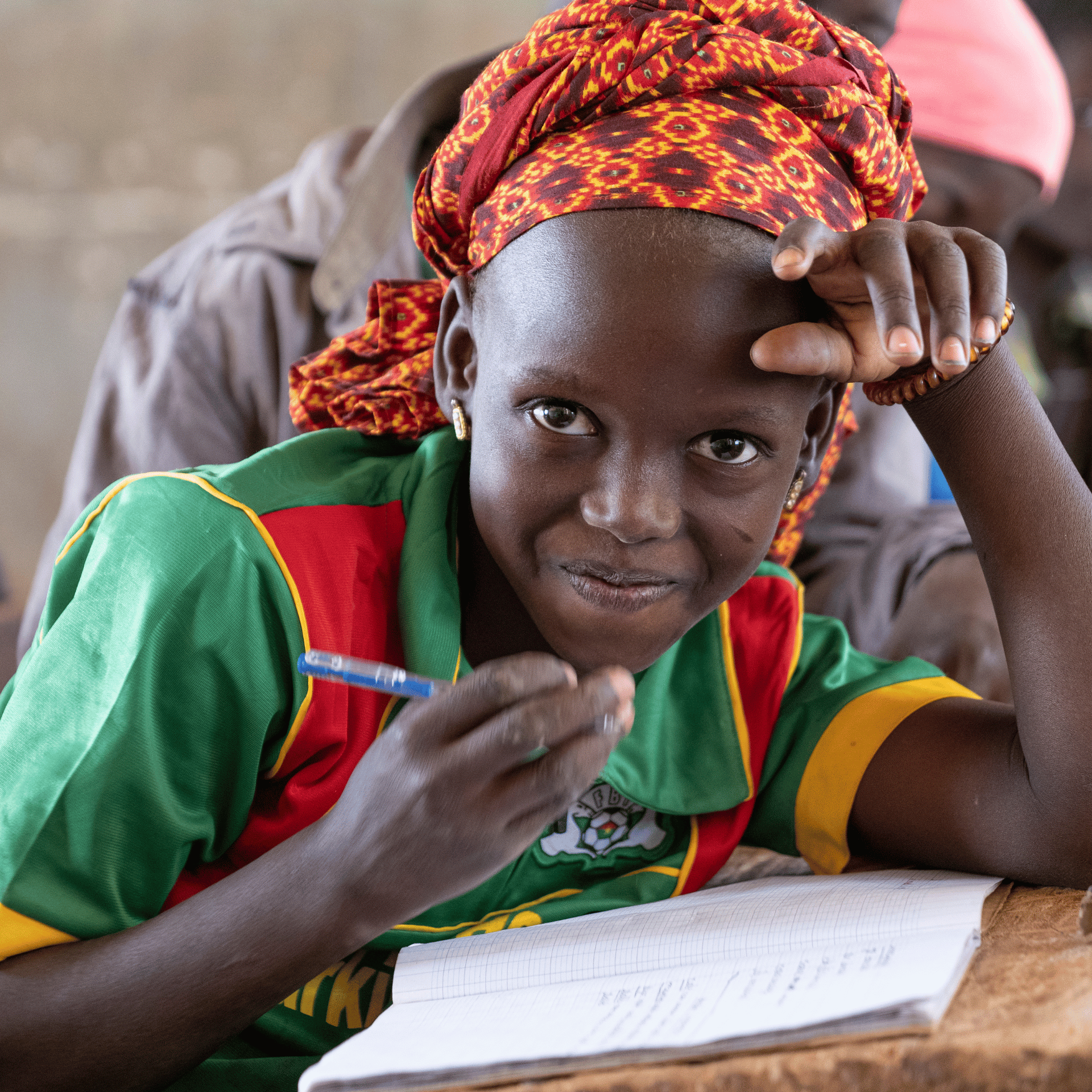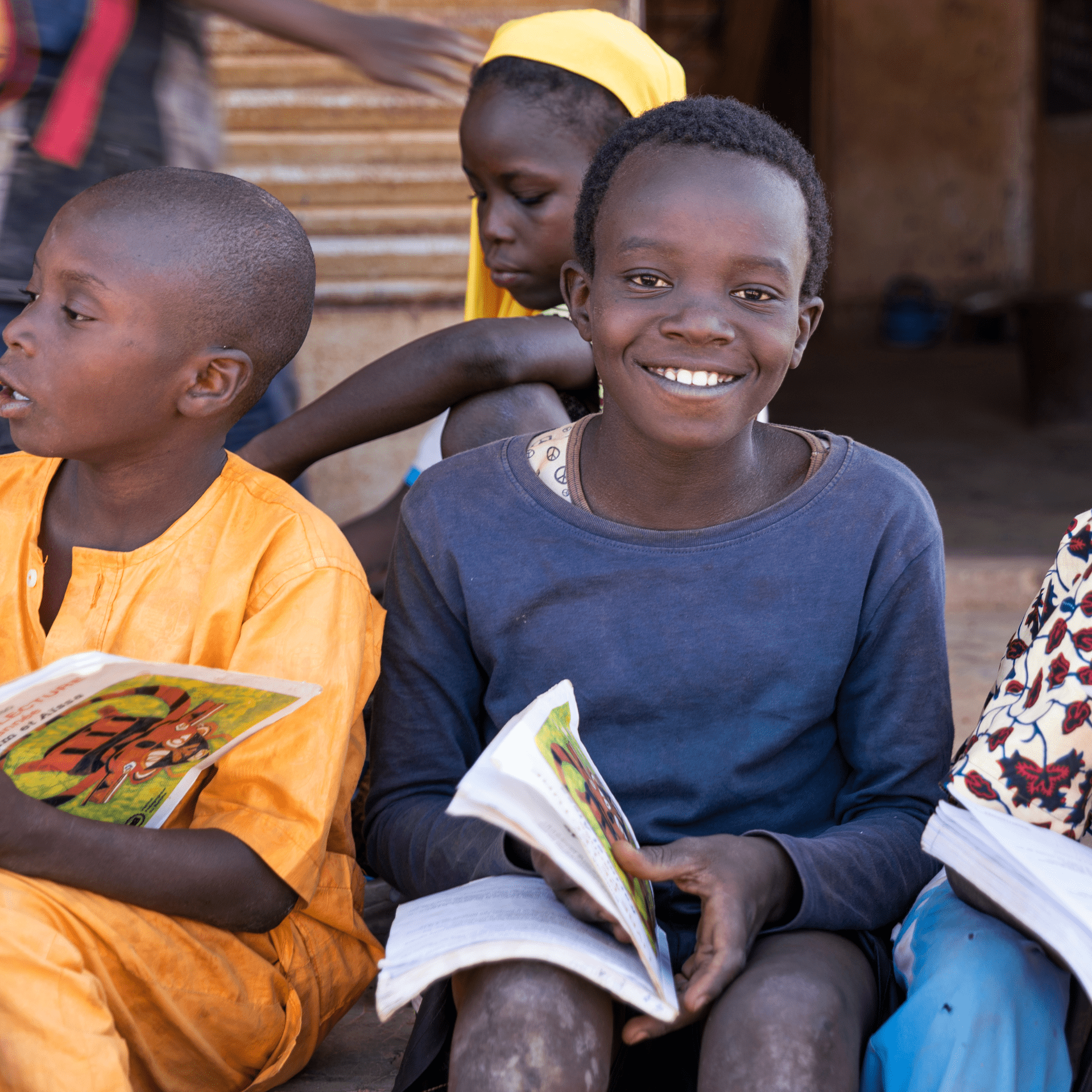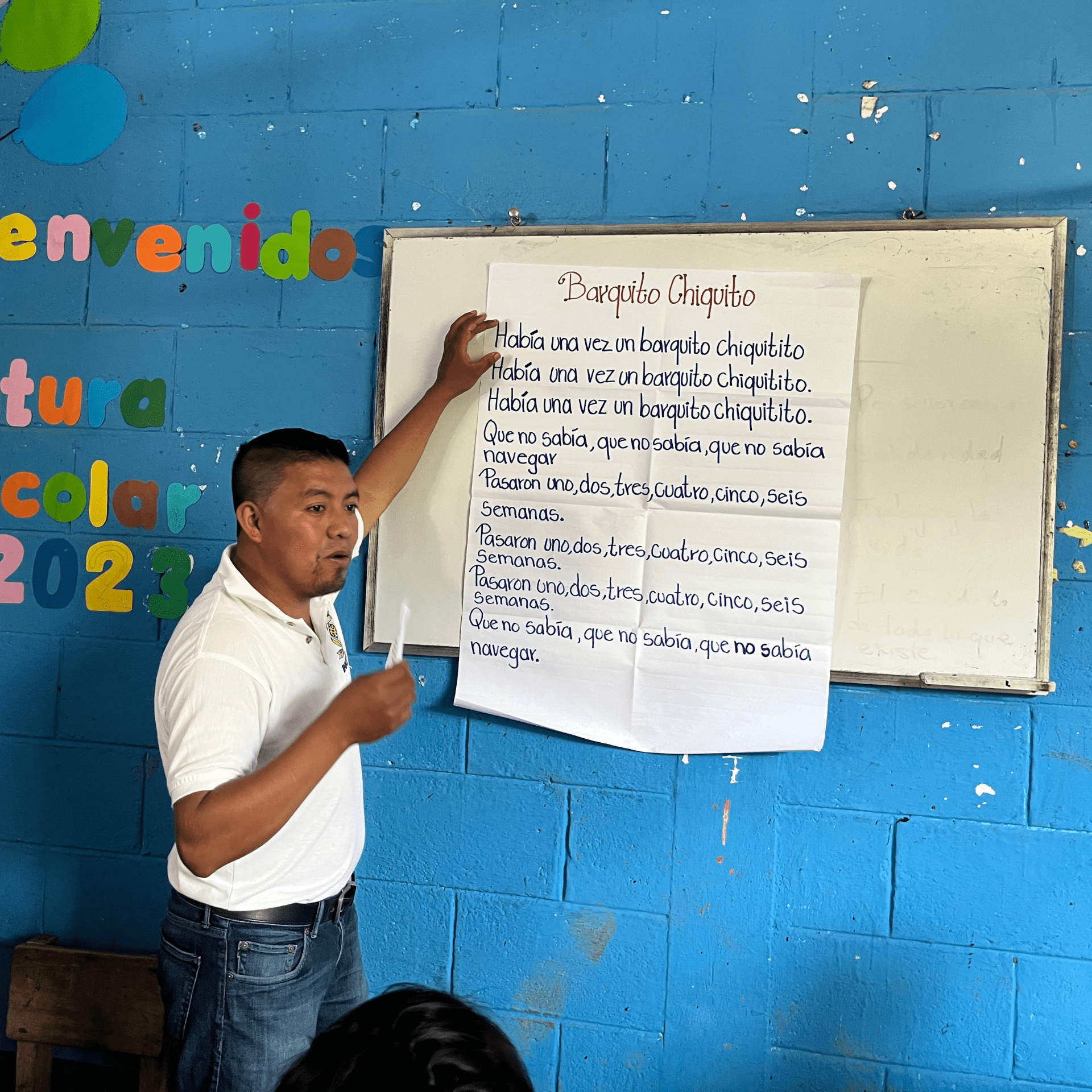
Related documents
In 2024

717,817
student beneficiaries

10,684
educational professionals trained

Twice
as many students successfully completing their education
Because with education, we build our future
Our vision: to provide every child with the knowledge to influence his or her own life and participate in the development of his or her community and country. In Burkina Faso, Guatemala, Niger and Chad, we provide schooling for children who have never been to school or had to drop out too early and offer pupils a quality primary education in their mother tongue and in the official language of the country. In this way, children are better protected against abuses such as forced labour or early marriage and can continue their studies or train for a trade.

In the countries where we operate, education faces many challenges.
- Millions of children are deprived of schooling as a result of armed conflict;
- Pupils’ results in reading, writing and arithmetic at the end of primary school are mediocre because lessons are not given in their mother tongue and teachers are poorly trained;
- Classes are often multi-grade and overcrowded;
- There is a lack of equipment.
Our mission is to welcome out-of-school children and to improve the quality and relevance of education so that every child can build his or her own future and participate in the development of his or her community and country.

How can children learn to read, write and count if they are taught in a language they do not understand?
In Burkina Faso or Guatemala, the official languages (often inherited from colonisation) are rarely spoken by many children whose mother tongue is one of the national languages, such as Mooré in Burkina Faso or the Mayan languages in Guatemala.
We advocate bilingual or even multilingual teaching in the local mother tongue and the official language of the country. This approach stimulates children’s participation, encourages them to think and act for themselves and to solve problems independently.

In many countries, girls stay at home to do domestic work, are often married off early and go to live with their in-laws. And even when they do go to school, they miss school during their periods because of taboos, the lack of sanitary protection or latrines in schools.
Yet it is only by being educated that girls can become autonomous, protect themselves against multiple abuses and take their future into their own hands. We ensure that girls learn and feel safe at school, thereby helping to reduce the number of girls dropping out of school and child marriages. For example, we distribute hygiene kits so that girls can continue to go to school during their periods.
What Sets us Apart
- We train all educational staff in our pedagogy to improve education in a sustainable way.
- We design multilingual teaching materials that are rooted in the local culture and relevant to the local population.
- We work closely with civil society and national education authorities.
- We value the active participation of children, families and communities in the education process.
- We build schools and classrooms for children displaced by armed conflict.
Adma, schoolboy in Burkina Faso 11 years old
It helps me to be able to use Mooré, my mother tongue, too, especially when reading. When I grow up, I would like to be a teacher.
Pupils at the heart of our projects
- For pupils aged between 6 and 12 in the public system (formal basic education), we help to improve the quality of primary education;
- For children aged between 9 and 15, young adults who do not attend school or who have dropped out, and illiterate adults in alternative systems (non-formal basic education), we teach basic skills to provide a bridge to the public system, to vocational training or to economic integration;
- For displaced and vulnerable children aged 3 to 17 benefiting from our Education in Emergencies projects, we enable educational continuity, offer appropriate curricula and provide a protective environment and psycho-social support.
Our areas of expertise
Our principles for quality education
Our pedagogical approach to improving the quality of education in disadvantaged countries is based on the experience of our specialists in education sciences and on our experience in the field.
Read more
Training for educational staff
Our pedagogical approach to improving the quality of education in disadvantaged countries is based on the experience of our specialists in education sciences and on our experience in the field.
Read moreCreation of educational material
School textbooks, storybooks, teachers’ guides… Enfants du Monde supports local trainers in designing teaching materials adapted to the needs and realities of local populations.
Read moreSchooling in emergency situations
We provide schooling for displaced children who are victims of the security crisis in Burkina Faso.
Read moreEducation for sustainable development
Children’s rights, environmental protection, health, culture of peace: all our projects aim to enable children to participate in the sustainable development of their community and their country.
Read more
My Donation Can Make a Real Difference
I could offer one day of bilingual education training to 2 teachers in Burkina Faso—helping improve the quality of their lessons.
I could provide bilingual textbooks to 14 children in Burkina Faso to support their learning.
I could bring bilingual audiovisual stories in Spanish and Mayan to 7 classrooms in Guatemala, making learning more engaging and inclusive.





